Tea Ceremony: A lecture for Pegasus Staff
Release Time:2022-12-12 12:03
The Tang Dynasty's Tea Classics said, "Tea comes from the Shennong."
The earliest tea drinking culture in China can be traced back to the Shennong era, and then evolved into the current tea art culture after thousands of years history.
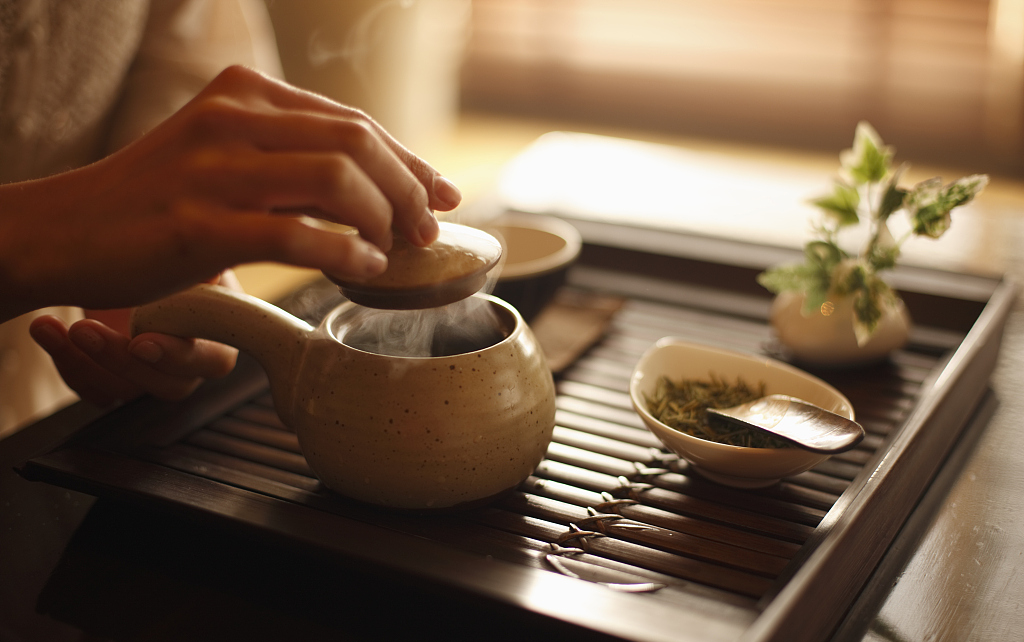
On this Thursday, Qingdao Pegasus School held a tea ceremony cultural experience activity for teachers and students to listen to the thick stories of traditional culture as a "Cultural Lecture" activity.
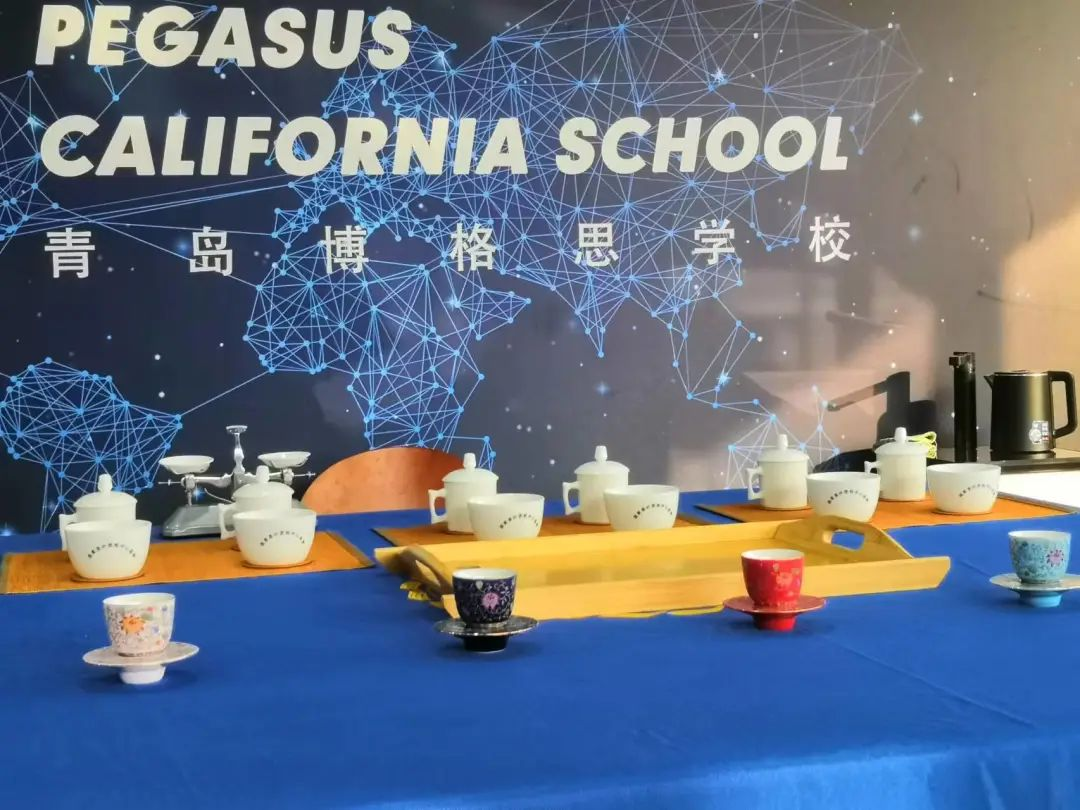
PART 1
Explore the Chinese Tea Ceremony
In the melodious classical music, Tai Shuangying, the national first-class tea critic, began to introduce the origin of tea culture. At first, tea was used as a medicine with remarkable effects, and then gradually changed into eating and drinking.
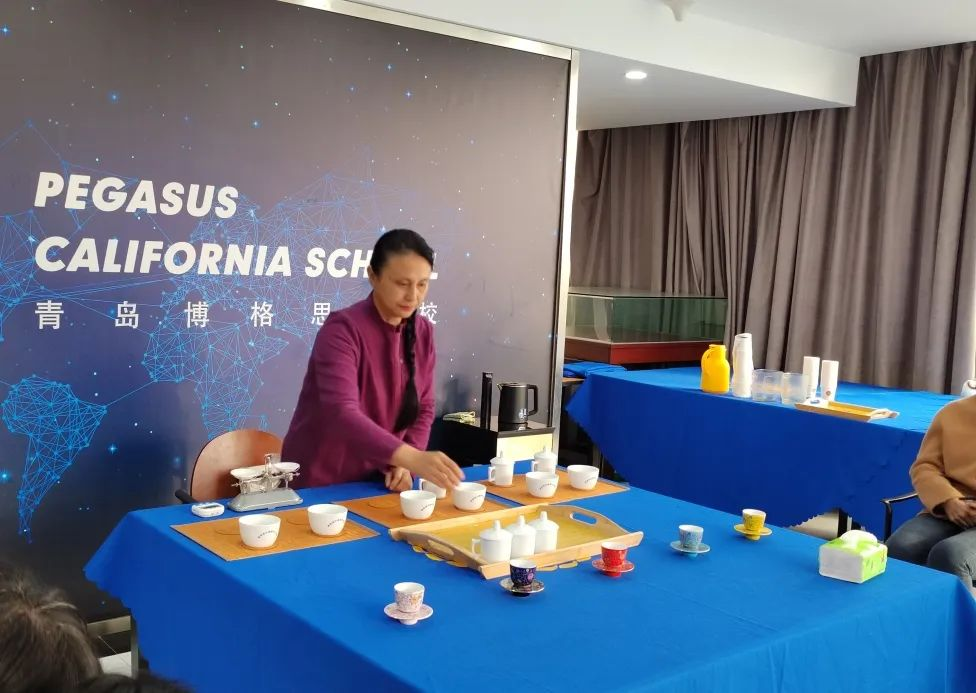
Next, Ms. Tai explained the types of tea. According to the degree of fermentation, basic tea can be divided into white tea, green tea, yellow tea, Oolong tea, black tea and Dark tea, and taught audience to distinguish different kinds of tea from color, shape and taste.
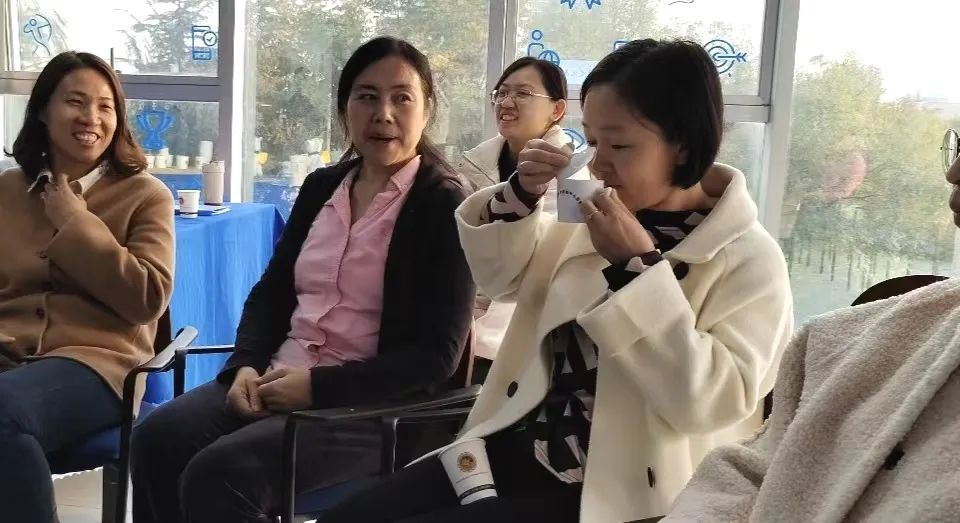
Later, Ms. Tai also demonstrated the complete process of making tea for everyone, such as boiling water, cleaning ware, warming cup, pouring tea, filling water, making and distributing tea. In every move, the thick tea aroma diffused in the classroom.
PART 2
Tea & Etiquette
The audience deeply experienced the history of tea culture from the culture, tea and etiquette.
The alternative rise of tea ceremony in Jiangsu, Guangdong, Yunnan and other regions, as well as the continuous evolution of tea frying, fermentation and other techniques, reflect the wisdom and contribution of people in various regions.
These accumulated wisdom crystals have promoted the integration and competition of tea culture in the vast territory, and jointly created the traditional Chinese tea ceremony and tea art.
In the inheritance and taste of tea arts, the rich heritage of traditional culture is fully experienced, the wisdom and strength of the nation are fully witnessed, the national pride also arises spontaneously.
PART 3
Tradition and Inheritance
Pegasus encourages school staff and students to experience and explore the diversity and splendor of world culture. There are clubs specifically for traditional Chinese painting and sculpture, and regularly cultural activities are held for teachers and students.
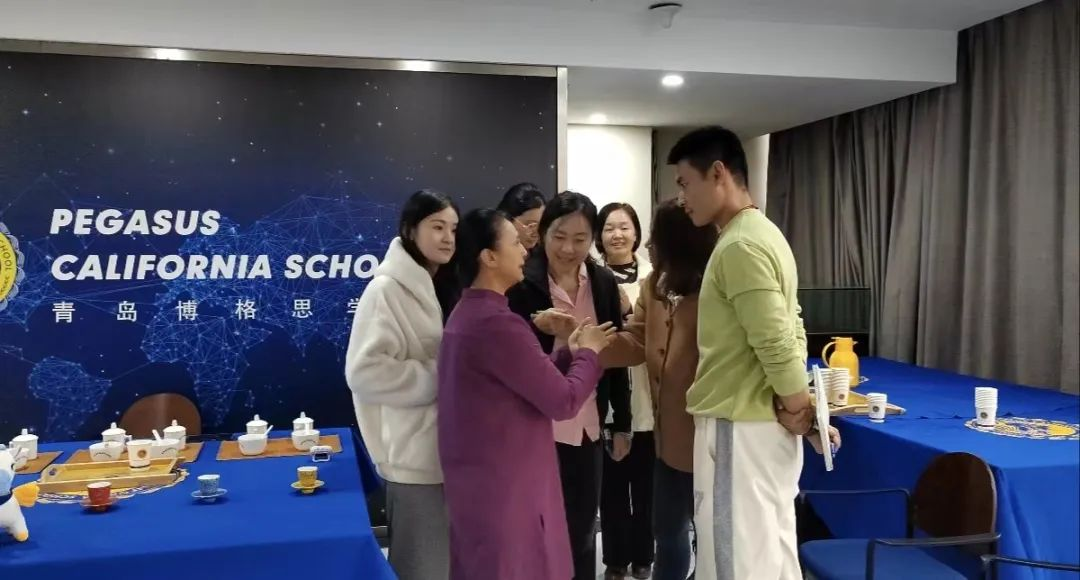
Through understanding the harmony but difference of world culture, we can deeply understand the traditional Chinese culture in our blood and learn to respect the differences and uniqueness of the world. It is hoped that our students can become inclusive inheritors and bridge builders in the cultural field of the world.
